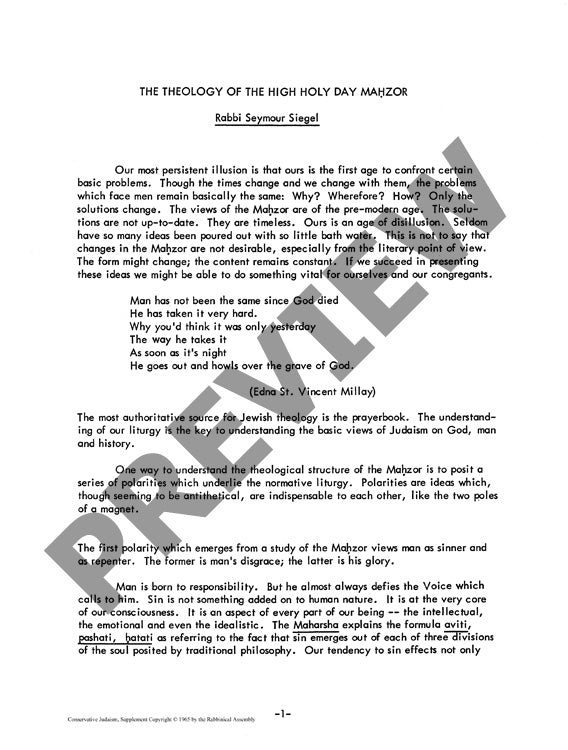The Theology of the High Holy Day Mahzor
Couldn't load pickup availability
This theological analysis examines the High Holy Day Mahzor through the lens of fundamental polarities that underlie Jewish liturgical thought. The study employs a phenomenological methodology, drawing particularly on the philosophical insights of Max Scheler to interpret the dynamics of repentance (teshuva) within traditional Jewish prayer. The research identifies several key theological polarities present in the Mahzor: man as both sinner and repentant being, humanity as simultaneously powerless and crowned with divine dignity, the tension between life affirmation and death consciousness, the dialectic of remembering and forgetting, and God as both judge and source of grace (hesed). The analysis reveals that teshuva functions not merely as escape from punishment but as fundamental recreation of the self and reinterpretation of past actions, enabling genuine spiritual transformation. The study demonstrates that these theological polarities are essential to maintaining psychological and spiritual balance, as emphasis on only one aspect of each polarity leads to spiritual pathology—whether cynicism, utopianism, morbidity, or sentimentalism. The findings suggest that the Mahzor's enduring theological significance lies in its capacity to hold these apparent contradictions in creative tension, providing a framework for authentic religious experience that acknowledges both human limitation and divine possibility.

More Information
-
Physical Description
-
Publication Information
Published 1965
ISBN
-
Publication Credits
Seymour Siegel

